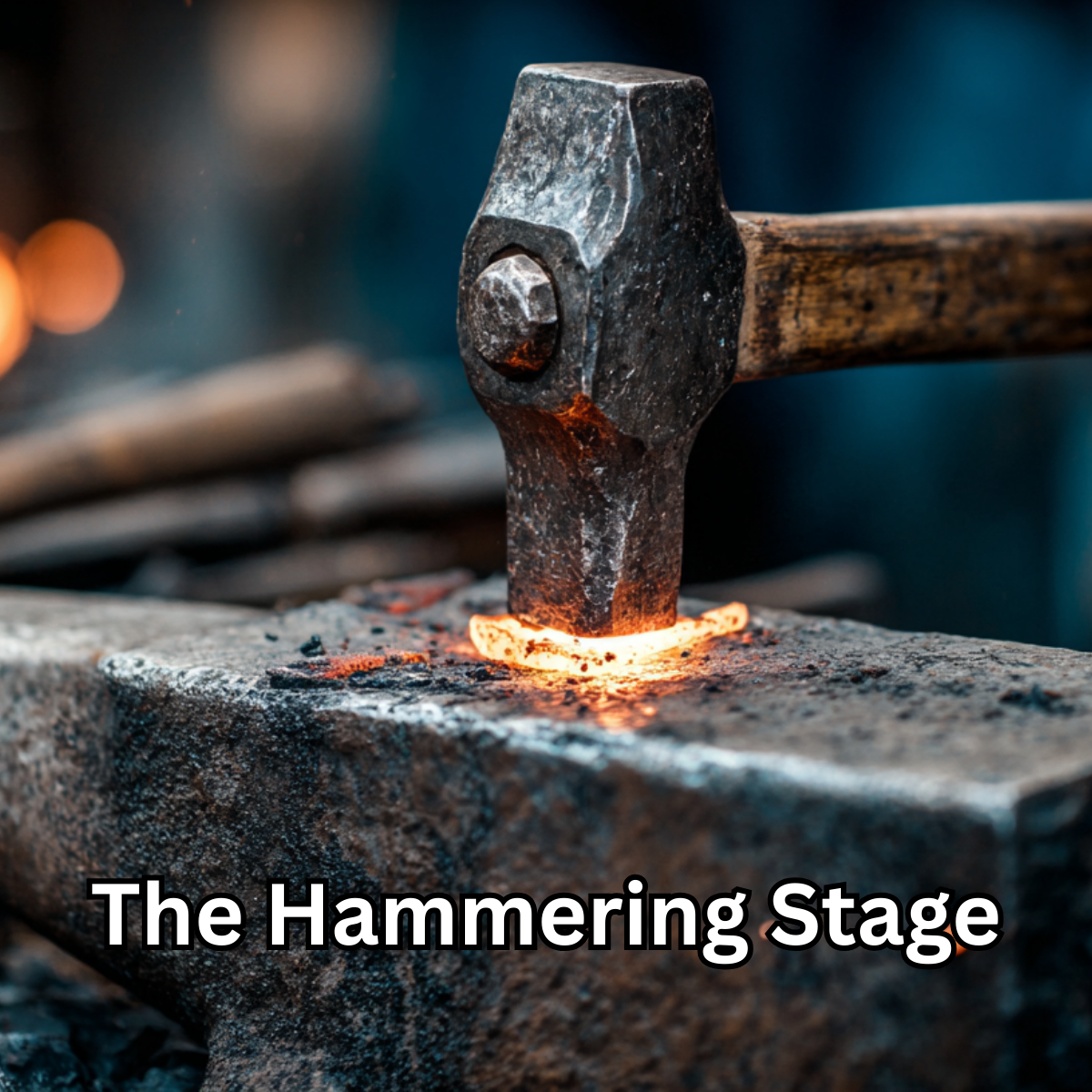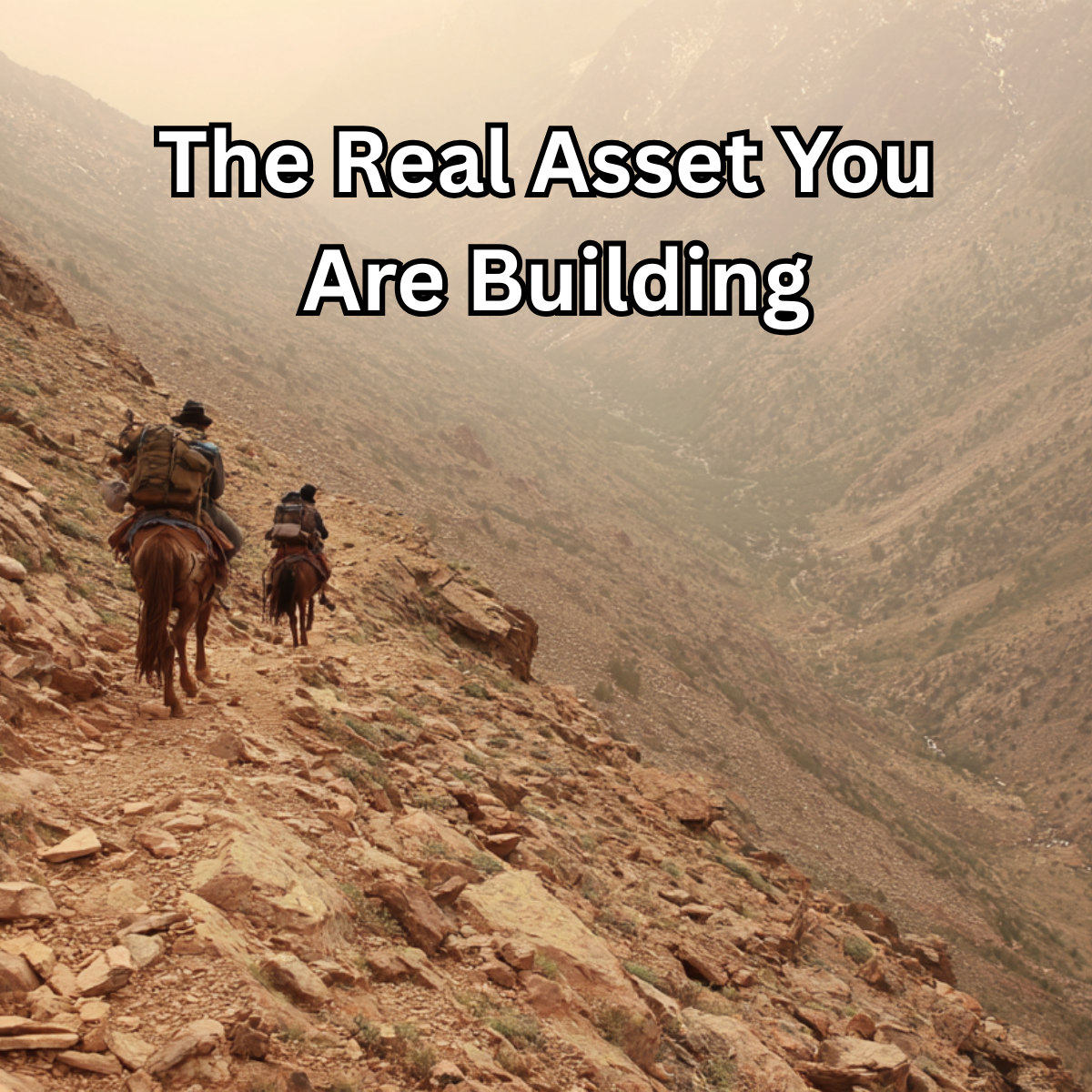The fog started before dawn, the kind that hangs in the air like a question. The pavement was dark glass when I laced my shoes and stepped outside, too early for traffic, too early for excuses. Two blocks from home, I saw them: a skunk and two small kits at the curb, the mother stiff with attention, the babies unsure of the curb’s gravity. She stepped forward, then back, and it was plain she was doing math with instincts. A car was coming up the hill, headlights dim through the mist. One of the kits hesitated, half on the asphalt, half off, as if the curb were a border between two countries, home and consequence.
I stopped, heart thumping, while the mother pushed them forward with the confidence only necessity grants. She kept glancing between the car and her hesitant child, repositioning, making herself larger, ushering with short, decisive movements. The second kit scampered across. The first one froze and trembled. The car slowed, and paused just enough to give the mother the margin she needed. She nudged, and the kit finally committed, a stuttering little sprint, a wobble, and then they were all in the wet grass on the other side, the mother still looking back as if she couldn’t quite believe it had worked.
I ran on, and the image refused to leave. You could see the conflict in her body: protect, push, wait, decide. The choice wasn’t between love and standards, I realized; it was about the timing of pressure and the cost of delay. That kit could not live permanently at the curb, and the car would not wait forever.
At 9:00, I had the inevitable call right before a scheduled release. We were going to miss our deadline again. I think every founder has this call tattooed somewhere behind their eyes. The explanations were familiar: a dependency we didn’t foresee, an edge case that wasn’t so edge, a rough integration that refused to smooth out under the iron. I felt the old reflex rise in me which is to teach, help, coach. Part of my job is translating chaos into growth, especially for people with strong will and green skills. But under the surface, something else stirred: the memory of the skunk, the car, the kit with one paw in danger and one paw in denial.
This morning, I was at the office. The fog had lightened to a dull gray. When I walked into our floor, I noticed one chair with a rip in the seat, a long crescent exposing the metal beneath. It was off to the side near the window, almost like it had exiled itself. No one will use it again, not really. It sinks in when you sit. I caught myself thinking: I could get it repaired. I could call a shop, expense it, add one more small errand to a list of small errands. But what I needed was a chair that works. Not a half-fixed relic. Just a chair.
The chair irritated me more than it should have. Probably because I knew the truth beneath the irritation: when something can’t meet the standard required by the work, the kindest thing is to tell the truth quickly. Not because people are disposable, but because pretending helps no one. I can mark this day on a calendar: we missed the release, and instead of quietly rolling the deadline again, instead of praising grit while avoiding accountability, I sat down and wrote out the conversations I’ve avoided. I listed the names. Not in anger, though admittedly, I felt some but in respect for the team members carrying twice their load so that mediocrity has a place to sit.
I talk a lot about patience here, about how growth takes root slowly and how a person’s slope matters more than their intercept. That remains true. I have a soft spot for high-will, low-skill people who show up early and stay long, who ask questions, who tug at the problem until it moves. I was one of them once, back when my code had more comments justifying my choices than choices worth justifying. Mentors didn’t fire me. They taught me. They set clear bars, gave me practice reps that matched my current size, then steadily raised the bar. They told me where I stood, without romance.
But there’s another truth I forget when I’m tired: every day we avoid naming the gap, we make the gap normal. The rest of the team sees it, too. The quiet message is the loudest one in the room. One person pours their whole soul into the system and ships work that sings; another stays busy but never quite finishes, never quite accepts feedback except in theory. If I let both stand unaddressed, I’m the one writing the standard: effort equals outcome. That’s not kindness. That’s an insult to the people who deliver.
At lunch I kept thinking about the mother skunk. She couldn’t carry the kit across. She could block traffic for a moment. She could position herself to give the kit a shot. But at some point, the kit had to move. There’s a pressure that’s loving: the nudge that says it’s time to go, now, I’m with you, but your legs have to do the work. And there’s a pressure that’s cheap: the kind that inflates someone beyond their present strength, promoting them to ease my conscience or to fill a gap. I’ve done both. One grows people. The other teaches the worst lesson: that proximity to urgency counts as progress.
I went back and reviewed the last six weeks for the team. We had slipped three times on a feature that should have taken ten days. We added a daily standup, then another weekly checkpoint. I gave more attention, more advice, more metaphors than anyone asked for. Curiously, the more attention I gave, the less ownership I saw. When I’m honest, I see my fingerprints on the drift. I padded the room so no one would get hurt. But all the padding did was keep people from feeling the edges that teach.
A few years back, late in the day, I sat with an engineer whose performance had seesawed for months. He’s a kind person, which always makes the judgment harder. We talked for almost an hour. I asked what would help him win. He named the usual suspects: clearer specs, more pairing, fewer parallel tasks. Then he said the thing I wasn’t expecting, he knew he wasn’t keeping up with the pace the team needed. He’d known for weeks. My stomach dropped. He hadn’t been waiting for a lifeline. He’d been waiting for me to say what was already true.
I put the chair in the middle of the room to remind me. It looked absurd there, torn vinyl grinning, edges unraveling like a confession, but I needed the interruption. That chair had become my apology for decisions I was avoiding. I’d been circling it for weeks, pretending time would stitch the rip closed on its own. It hadn’t. It wouldn’t. So I set it where I couldn’t ignore it, a small, honest signal that the repair I owed wasn’t upholstery; it was a choice.
The rest of the day was arranging the nudge and the consequence. Not a surprise firing, not a public shaming, not heroics. Clear standards. Weekly check on one metric that matters. Fewer simultaneous responsibilities. A date on the calendar where we decide if the gap has closed enough to be fair to the underperformers and fair to the team as a whole. Not a thousand goals. One. Ship the feature you own by a specific time, with tests that pass and a plan for rollback. If people are not able to hit the bar, then help them land somewhere that fits. Both outcomes are honest. Both are a kind of respect.
This all sounds stern when I read it back. It doesn’t feel stern. It feels like drawing a line so no one wanders into traffic. I’ve fooled myself into thinking empathy means I protect people from discomfort. But discomfort is not the enemy. It’s the teacher. Prolonged vagueness is the enemy. It’s what keeps people standing at the curb, one foot in and one foot out, while the world keeps moving.
Here’s the small, actionable thing I’m doing tonight: I’m writing down the one standard that matters most for each person on my team, one sentence each. Not a to-do list, not a vague aspiration. A clear expectation they can either meet or miss. Tomorrow morning, I’ll share it with each of them and ask them to rewrite it in their own words. If we can’t agree on the sentence, that’s the conversation we need. If we can, then we have a shared curb to step off of, together.
Before I lock up here, I glance in the room. The ripped chair waits by the door, ungainly, silent, honest. I don’t hate it. It did its time. It served. It just can’t carry the weight we need anymore. Maybe I’ll haul it to the trash on my way out. Then I’ll go home, set my running shoes by the door, and try to sleep knowing that tomorrow I will ask a few people to take a step. It won’t be dramatic. It will be specific. Which is the next kind of kindness I owe.
How long do we let someone hover at the curb before we admit that the safest place is, in fact, across?




